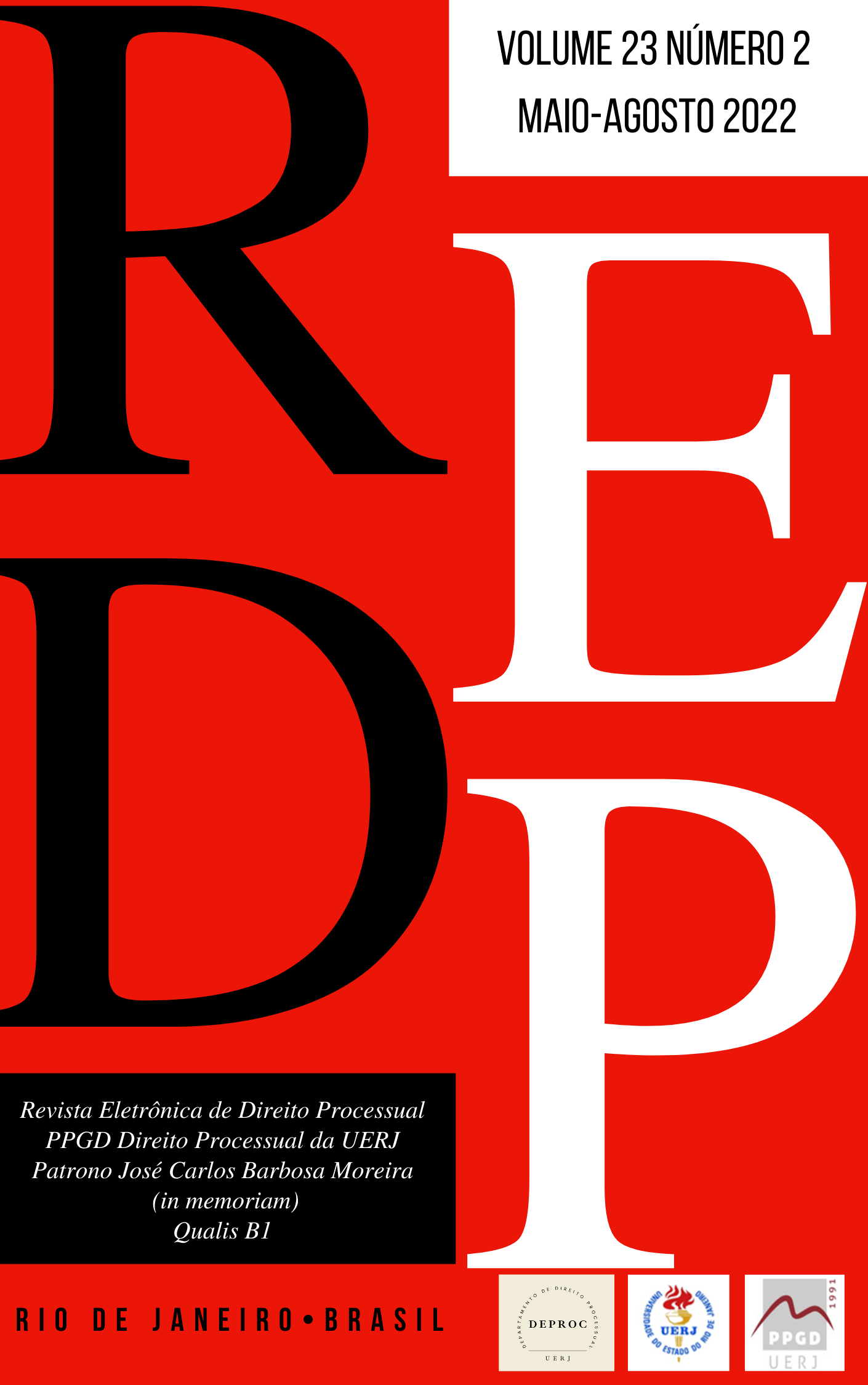A CONTRIBUIÇÃO DO PRECEDENTE VINCULANTE PARA O DESENVOLVIMENTO ECONÔMICO DOS PAÍSES
DOI:
https://doi.org/10.12957/redp.2022.67532Palavras-chave:
Desenvolvimento, precedente vinculante, segurança jurídica, previsibilidade, celeridadeResumo
O artigo estuda se a adoção do precedente de natureza vinculante pode ajudar no desenvolvimento econômico dos países. Nesse sentido, a pesquisa tem como pano de fundo o ordenamento jurídico brasileiro, que sempre adotou o sistema da civil law, dando pouca importância aos precedentes e agora caminha para um sistema híbrido, no qual a lei e os precedentes vinculantes convivem harmonicamente, devendo ambos ser respeitados pelo juiz. Dessa forma, primeiramente, são analisados os principais fatores que a ordem jurídica de uma localidade deve ter para ser considerada atrativa para investimentos. Em segundo lugar, as expectativas que a adoção do precedente vinculante traz, como a maior previsibilidade das decisões. Outro efeito importante é uma maior celeridade das decisões judiciais, já que a solução para o caso que é submetido à análise judicial, uma vez repetidos os mesmos fundamentos jurídicos e fáticos de casos anteriormente decididos, dependerá apenas de uma operação de subsunção do magistrado. Conclui-se que se trata de um expediente válido e que contribui no desenvolvimento dos países, mas que precisa de um tempo de maturação para que seus efeitos positivos sejam produzidos.
Downloads
Publicado
Como Citar
Edição
Seção
Licença
Todos os artigos publicados na Revista Eletrônica de Direito Processual (REDP) (Departamento de Direito Processual, Universidade do Estado do Rio de Janeiro, Brasil) são licenciados por meio de uma Licença Creative Commons - Atribuição 4.0 Internacional (CC BY 4.0).
Os autores retêm os direitos autorais de seu artigo e concordam em licenciar seu trabalho com a licença CC BY 4.0, aceitando assim os termos e condições específicos desta licença disponíveis no seguinte website: https://creativecommons.org/licenses/by/4.0/legalcode.
- Os autores concedem à REDP o direito de primeira publicação, de se identificar como publicadora original do trabalho e concedem à revista uma licença de direitos não exclusivos para utilizar o trabalho das seguintes formas: Reproduzir, vender e distribuir cópias eletrônicas ou impressas do manuscrito como um todo, de partes específicas do manuscrito e de suas traduções para qualquer idioma;
- O uso do artigo por terceiros é livre, contanto que a integridade da publicação seja mantida e seus autores originais, periódico de primeira publicação e detalhes de citação sejam identificados.
Dentro dos termos da licença, os autores podem entrar em acordos contratuais adicionais separados para a distribuição não exclusiva da versão publicada do trabalho na revista.
Copyright and Licensing
All articles published in the Procedural Law Electronic Review (REDP) (Department of Procedural Law, State University of Rio de Janeiro, Brazil) are licensed under a Creative Commons License - Attribution 4.0 International (CC BY 4.0).
- Authors retain copyright to their article and agree to license their work under the CC BY 4.0 license, thereby accepting the specific terms and conditions of this license available at the following website: https://creativecommons.org/licenses/by/4.0/ legal code.
- Authors grant REDP the right of first publication, to identify itself as the original publisher of the work, and grant the journal a non-exclusive license to use the work in the following ways: Reproduce, sell and distribute electronic or printed copies of the manuscript as a whole, of specific parts of the manuscript and its translations into any language;
- Use of the article by third parties is free, as long as the integrity of the publication is maintained and its original authors, first publication journal, and citation details are identified.
Within the terms of the license, authors may enter into separate additional contractual agreements for the non-exclusive distribution of the published version of the work in the journal.





